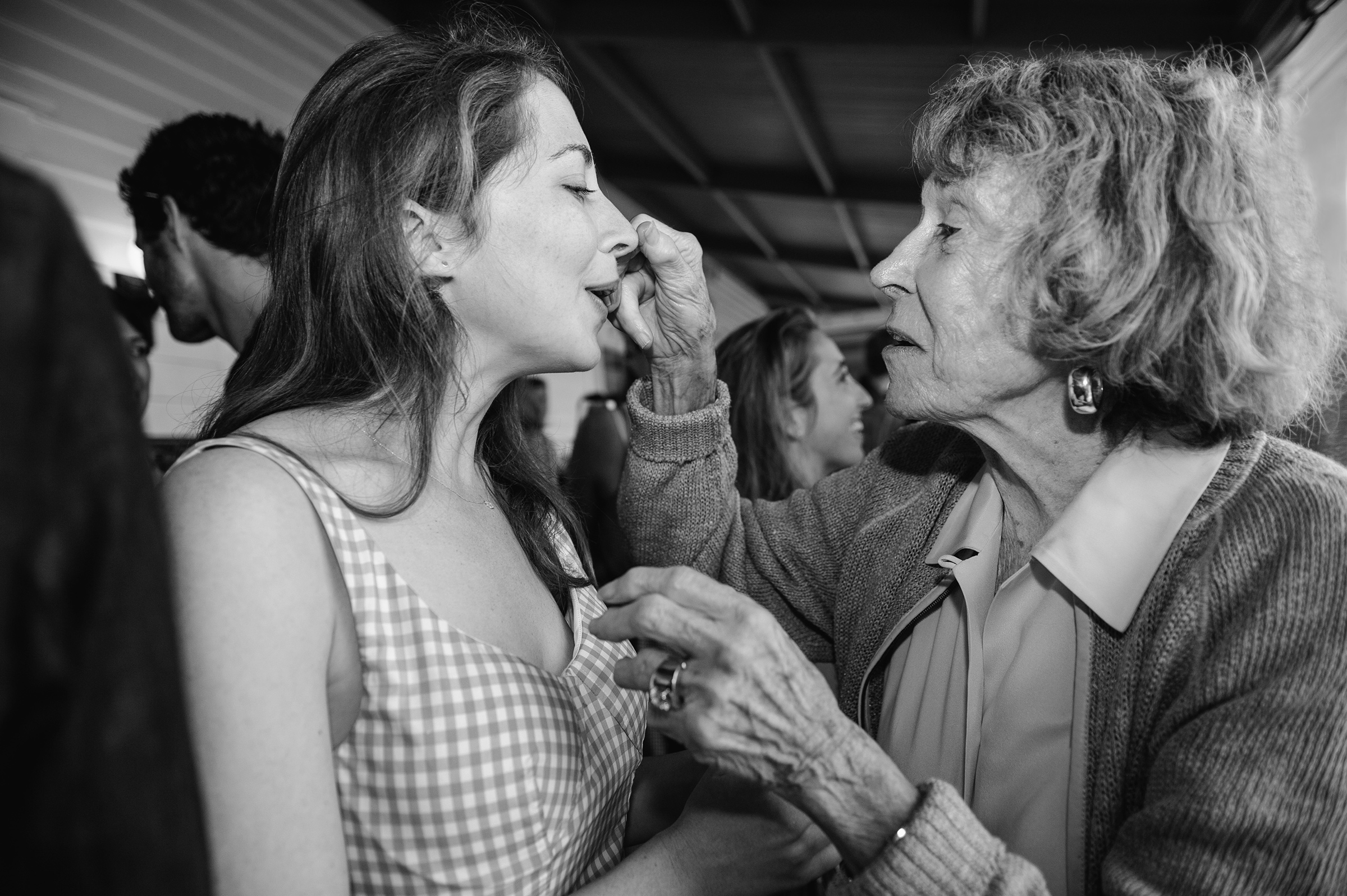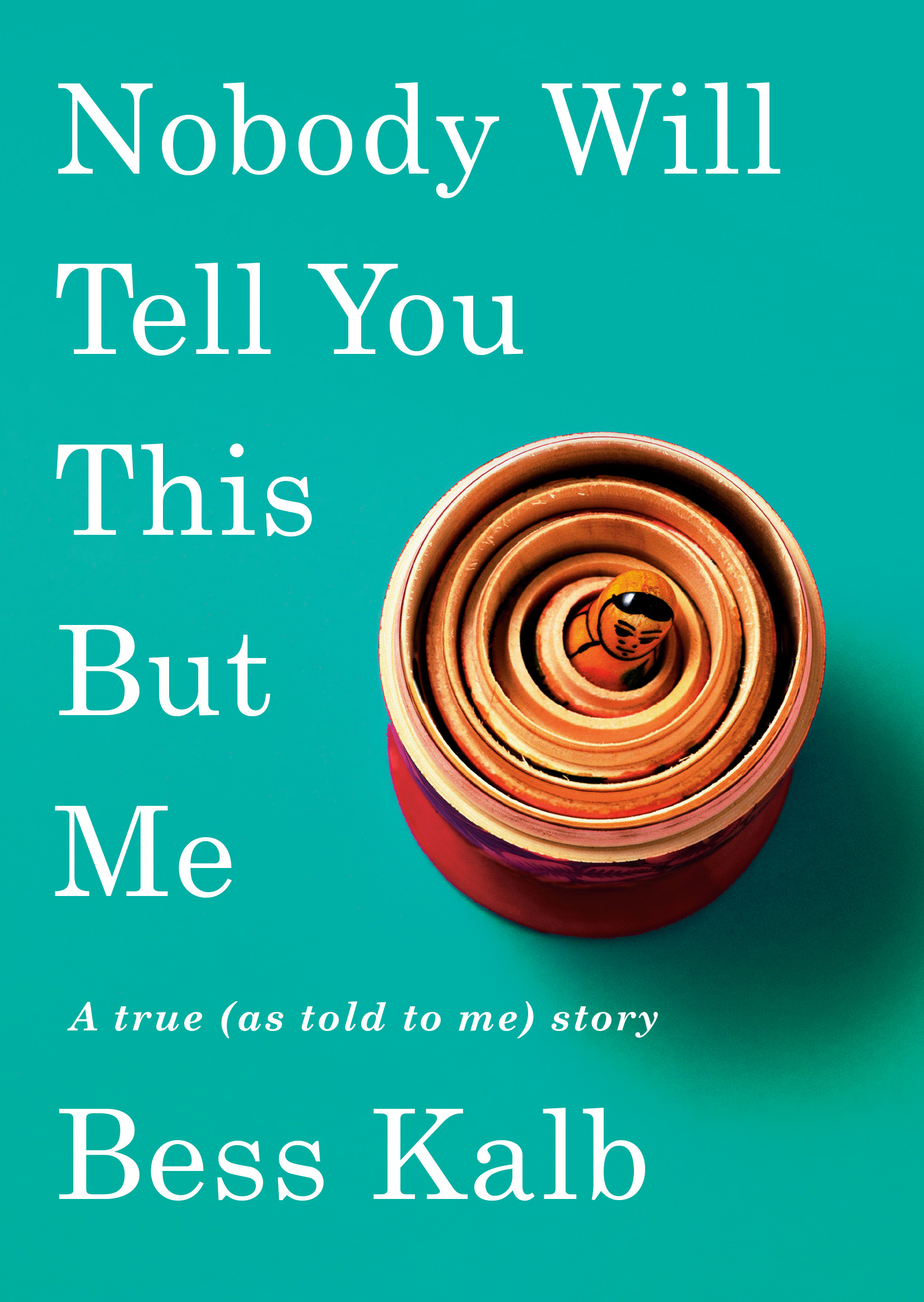
My grandmother Bobby Bell helped raise me. From the hour I was born, she was a constant presence in my life and as I grew into adulthood, she became my closest confidant. When she died in 2017 at the age of 90, I started writing her life story in her voice, speaking to me from beyond the grave. Nobody Will Tell You This But Me is the story of our relationship as only she could tell it.
THE FRUIT OF THE VINE
MY MOTHER TAUGHT ME EXACTLY ONE THING and it’s how to make brisket.
It doesn’t take a genius.
The key is you just leave it alone. You put the side of beef in a large pot, pour in whatever—red wine, tomatoes from a can, some carrots cut up, a half an onion, a fistful of kosher salt, a potato for your grandfather—and let it sit on a very low flame. I’d pour in some water if it got too dry, but otherwise, it required very little effort. You could forget about it for the entire day and there it would be. Don’t say I never taught you anything.
How you loved my brisket. You didn’t care if it was tough. You loved the taste of the gristle on the edges and the char from the bottom of the pot. Before you came over to the house in Ardsley for Passover or break the fast or what have you, you knew there would be brisket. You’d talk about it like a fiend. “Is it time for brisket yet?” “Grandma, is there going to be enough brisket?” Always with the appetite. Your parents never made beef because of your father’s cholesterol, so you were probably very anemic. You needed the blood running through you.
It’s my mother’s recipe, more or less. She wasn’t religious, but she felt it was very important to have everyone over to the house in the Greenpoint neighborhood of Brooklyn on Friday nights for Shabbat dinner. There wouldn’t always be beef, but there’d be liver or sweetbreads or tongue. If you stew it long enough, what’s the difference?
My brothers were all grown up and out of the house, and every week she’d invite them with their wives and their children to her dining room table—the same table where we were all born. She’d preside over the whole thing. She’d stand up, bang her fist on the table, take one of my father’s matchbooks from her apron pocket, and strike a match. You could hear a pin drop. She’d lean her enormous breasts over the table and light two long candles in their brass holders she brought from Russia and shake out the match.
Then she’d put a kitchen cloth over her head. Like a looming ghost, she’d very slowly lift her hands up in front of her eyes and chant with her head bowed, her hands lilting back and forth with the incantations.
“Baruch ata Adonai, Eloheinu Melech ha-olam, asher kid’shanu b’mitzvo-sav”—which was incorrect, it’s b’mitzvo- tav with a t not -sav with an s, but that’s how it was in the Yiddish pronunciation—“vitzivanu l’hadlik ner shel Shabbos.”
Then still under the cloth she’d say to my brother, “Georgie- zun, vayne!”
Georgie would wink at me and foist up a cup of wine, his chest all puffed out. He’d mouth along dramatically like an opera singer, and I’d try not to laugh as she continued on in her trance.
“Baruch ata Adonai, Eloheinu Melech ha-olam, boreh p’ri hagafen.”
Blessed are you, Adonai, for giving us the fruit of the vine.
Imagine calling a jug of my zayde’s forty-cent kosher wine “the fruit of the vine.” Hardly.
Then she’d take the cloth off her head and fold it back up on the table, just as her mother had done before her, and hers before her, and hers before her, and so on. And there she’d stand, solemn as a statue, beholding all her creation.
So decades later I’d have the family over for Seder and we’d all be at my house in Ardsley in our nice clothes under the crystal chandelier. I’d stand at the head of the table and everyone would shut up. I’d light the candles in the same brass holders and I’d blow out the match and put my cloth napkin over my head. I didn’t say the prayers—I never really learned the words. But I hummed softly to myself and rocked back and forth under the veil. You asked me what I was saying. “Rose, Rose, Rose.” My mother’s name.
Bessie, you are the only daughter of an only daughter of an only daughter. The fruit of the vine.
THE SLEEPOVER
Neither of us has ever been any good at falling asleep. We’re wired the same. Always something to do. Something to read. To eat. To worry about. The two of us, lying awake at midnight, staring up at our ceilings, two minds whirring in the dark.
Do you remember Eleanor Porter? You adored her—she was a kind, polite child. You both read those historical fiction books about colonial dolls who came to life. Do you know whatever happened to her? You mustn’t lose touch with your friends, honey. Look her up online.
Anyhow. When you were about eight years old you were over at Eleanor’s house for a sleepover and you couldn’t sleep. You had tossed and turned in your sleeping bag on the floor, and you had worked yourself into a cold sweat. You got in your own head. What could you possibly be so stressed about at eight years old? Whether your dollhouse was up to code?
This had happened before. At that girl Rebecca’s. At Claire’s on her birthday. At Stephanie’s just a few weeks before. Your mother had warned you it would happen again. She told you to leave after dinner. That she wouldn’t pick you up later than ten. That you needed to “know yourself.”
But you wouldn’t accept defeat. Not on her terms. So dinner came and went and you felt fine. And you changed into your pajamas and you watched the movie with the other girls with your teeth grinding in your skull, and you felt the adrenaline rise in your chest and you readied yourself for lights out. You got into your sleeping bag and you were immediately in hell. The clock on the wall was ticking too loudly. The carpet beneath you had a staple in it you could feel through all your layers. The tag in your pajama pants was stabbing at you. You were doomed.
And there was no way you could call your mother. You refused to hand her this victory, no matter how desperately you needed to get into your own bed. But there was another way. Grandma.
It was eleven p.m. and you wriggled out of your sleeping bag and tiptoed down into the kitchen, picked up the phone, and dialed my number in Ardsley. It was one of the three numbers you knew by heart.
I was at the front door in my cream-colored Acura in thirty minutes. I insisted you tell the girl’s parents—I didn’t want everyone waking up and calling the police. You had to walk into their bedroom with your tail between your legs and tell them you were leaving. They didn’t mind the late hour, they were sympathetic; Eleanor’s mother was a kind woman.
You gathered up your things, handed me the sleeping bag, and I piled you into the backseat and drove you straight to your parents’ house. It was only fifteen minutes away, but you were sound asleep by the time we pulled into your driveway.
I sat with the news on the radio and let you sleep like that for half an hour before I scooped you up and carried you inside like a rag doll.
You were eight, not some toddler. My back hurt for a week.
Your mother was in the living room wide-awake, of course. She’d been expecting your call.

Excerpted from NOBODY WILL TELL YOU THIS BUT ME by Bess Kalb. Copyright © 2020 by Bess Kalb. Excerpted by permission of Alfred A. Knopf, a division of Penguin Random House LLC. All rights reserved. No part of this excerpt may be reproduced or reprinted without permission in writing from the publisher.
More Must-Reads from TIME
- Donald Trump Is TIME's 2024 Person of the Year
- Why We Chose Trump as Person of the Year
- Is Intermittent Fasting Good or Bad for You?
- The 100 Must-Read Books of 2024
- The 20 Best Christmas TV Episodes
- Column: If Optimism Feels Ridiculous Now, Try Hope
- The Future of Climate Action Is Trade Policy
- Merle Bombardieri Is Helping People Make the Baby Decision
Contact us at letters@time.com